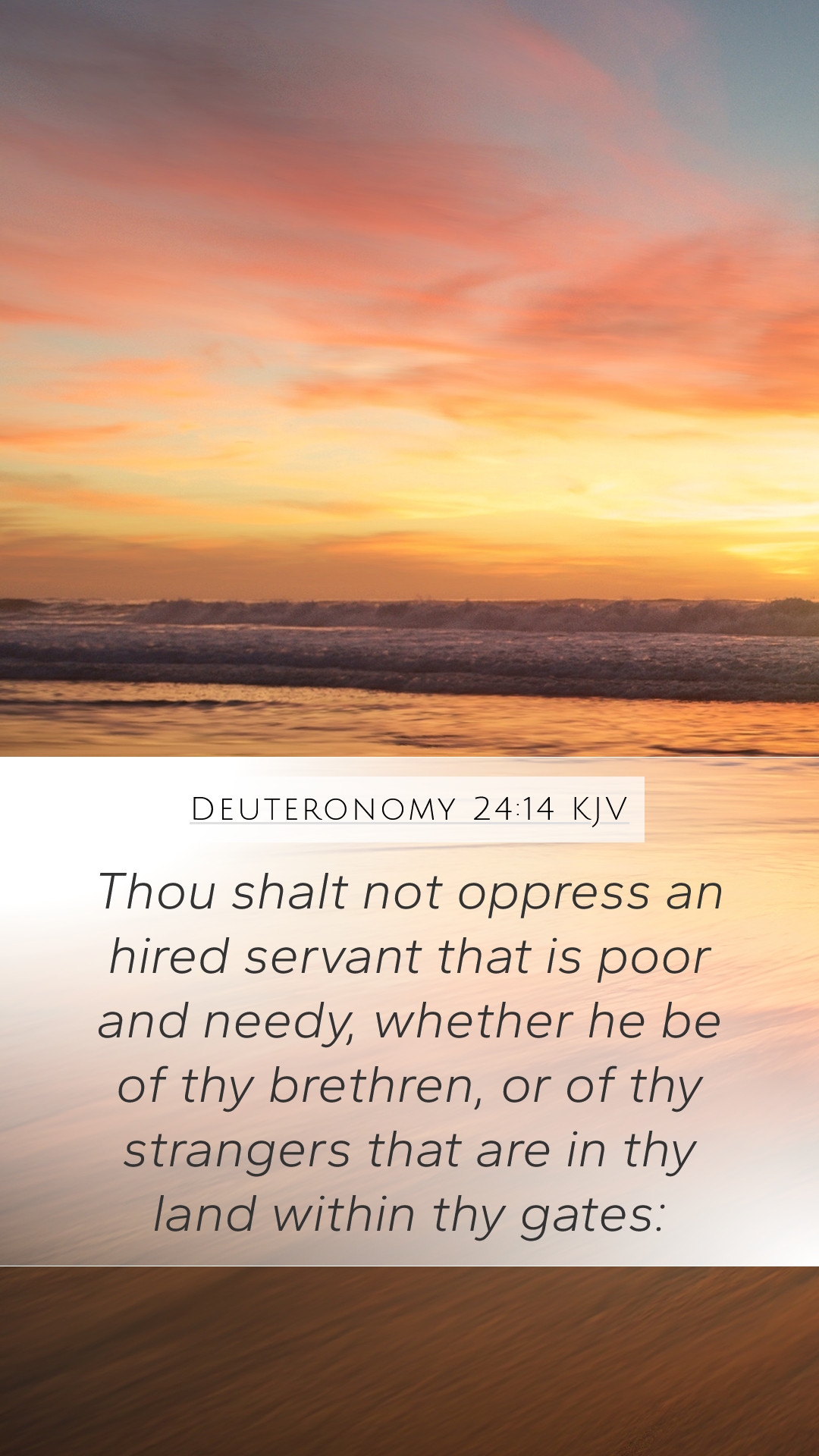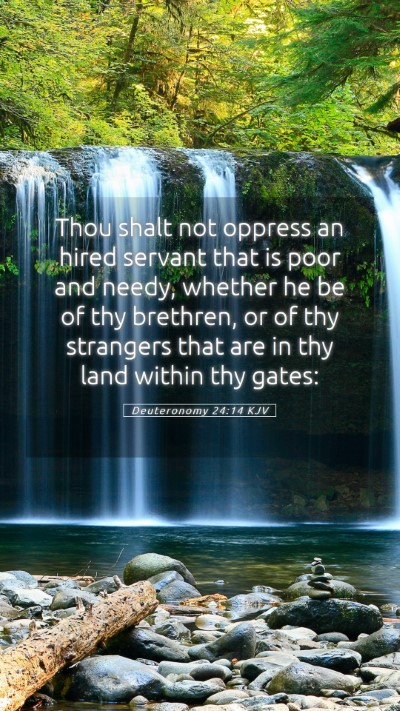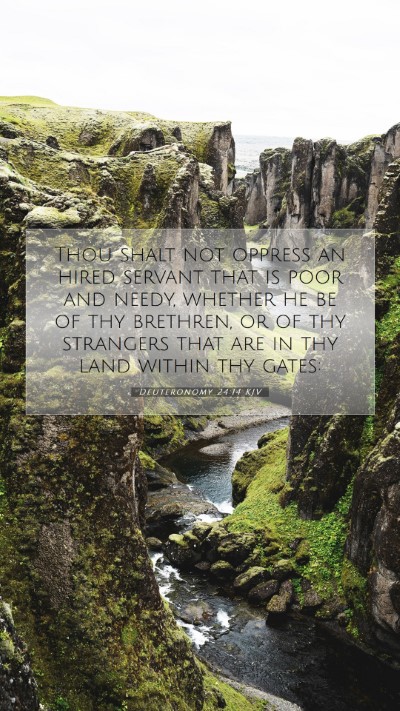Understanding Deuteronomy 24:14
Bible Verse: Deuteronomy 24:14
"Thou shalt not oppress an hired servant that is poor and needy, whether he be of thy brethren, or of thy strangers that are in thy land within thy gates."
Summary of Meaning
The verse speaks to the importance of treating all workers fairly, especially those who are vulnerable, such as the poor and needy. It emphasizes equity in labor practices and underscores the moral obligation to care for those in a position of disadvantage.
Bible Verse Commentary
Insights gathered from renowned public domain commentaries such as Matthew Henry, Albert Barnes, and Adam Clarke shed light on the depth of this verse:
-
Matthew Henry's Commentary:
Henry suggests that this command reflects God’s concern for social justice. The reminder not to oppress the poor resonates through the entire Bible, indicating the character of God who values the dignity and rights of all individuals.
-
Albert Barnes' Notes:
Barnes discusses the implications of this commandment within the broader context of justice and mercy. He notes that the hireling is deserving of fair treatment and advocates for their rights to proper wages and respect, suggesting that it is God's will for His people to exhibit compassion.
-
Adam Clarke's Commentary:
Clarke connects this passage with the practical aspects of social ethics. He emphasizes that God acknowledges the plight of the impoverished and issues a divine mandate to uphold their rights, suggesting that oppression of the needy is fundamentally against God's will.
Historical and Cultural Context
Understanding the historical context is crucial for a comprehensive interpretation. In ancient Israel, the economy was largely agrarian, and the labor force often consisted of vulnerable individuals who relied on the goodwill of landowners. This verse was a protective measure meant to ensure fair treatment for hired servants, reflecting a broader divine concern for justice and human dignity.
Application in Daily Life
This verse compels us to reflect on our contemporary labor practices. It serves as a reminder to advocate for fair labor standards and to ensure that the vulnerable in our society, including low-wage workers and underprivileged laborers, are treated with respect and consideration.
Key Themes
- Justice and Fairness: The importance of treating all individuals with equality and justice, regardless of their economic status.
- Compassion: Encouragement to exercise mercy in dealings with others, understanding their struggles and being supportive.
- Divine Mandate: A reminder that God commands fair treatment as an expression of His character and expectations for His people.
Related Bible Cross References
- Exodus 22:21-23: "Thou shalt not afflict any widow, or fatherless child..."
- James 5:4: "Behold, the hire of the laborers who have reaped down your fields..."
- Proverbs 14:31: "He that oppresseth the poor reproacheth his Maker..."
- Leviticus 19:13: "Thou shalt not defraud thy neighbor..."
Conclusion
Deuteronomy 24:14 stands as a timeless exhortation for justice and compassion. As we engage in our Bible study groups or individual studies, this verse serves not only as a teaching about the treatment of laborers but also as an invitation to reflect our Creator’s heart through our actions towards others.
Whether participating in online Bible study or using various Bible study tools, engaging with verses like this one deepens our understanding of Scripture and its relevance in contemporary society.


